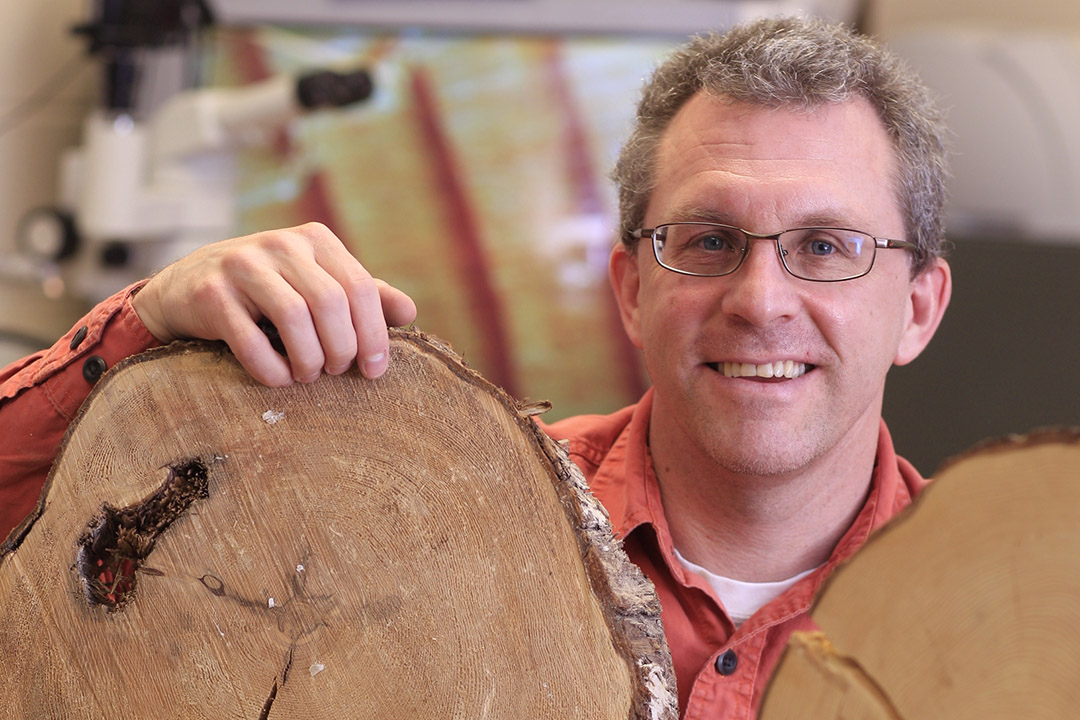
U of S professor earns U.S. award for undergraduate mentorship
University of Saskatchewan environmental scientist Colin Laroque was recognized today with an international award for his dedication to providing innovative and high-quality research experiences for undergraduate students.
The Council on Undergraduate Research has selected Laroque as its 2018 Geosciences Undergraduate Research Mentor, an honor that recognizes an individual who is a role model for impactful and transformative student-faculty mentoring relationships, and who maintains a sustained and innovative approach to undergraduate research. The award will be formally presented at the Geological Society of America meeting in Indianapolis on Nov. 6th.
“Colin’s excellence in collaboration and interdisciplinary teaching and mentorship, particularly in the area of sustainability, provides an exceptional undergraduate student experience,” said Mary Buhr, dean of the College of Agriculture and Bioresources. “His students are empowered to make changes happen, and with his leadership they bring sustainability into action.”
Laroque, professor in the College of Agriculture and Bioresources and the School of Environment and Sustainability, is also director of the Mistik Askiwin Dendrochronology Laboratory (MAD Lab) which conducts tree ring-related research to understand past climates, past glacier activity and extent, past ecosystem dynamics, and even past human activities.
In his nomination, his students highlight the substantial impact of his mentoring on their education and lives, noting that he “goes out of his way to give students ownership over their own learning.”
His innovative mentoring includes a program he began three years ago to train first-year students to become users of the Canadian Light Source synchrotron at the U of S to conduct their own research.
Laroque champions original research as being essential to the student learning experience. He credits his extended Métis family for modelling for him the use of experiential instruction to pass on environmental knowledge gleaned over the generations, and said he uses the same approach to teach his students.
“Metaphorically, I ask my students to walk behind me and see the environment the way I see the environment,” he said. “I help them explore all of the strange new worlds in environmental science. Once they are hooked on learning something of interest to them, their own enthusiasm carries them wherever they choose to walk in their future.”.
Laroque, who received a bachelor of science degree from U of S and his master’s and PhD at the University of Victoria, taught for 10 years at Mount Allison University in New Brunswick before returning to teach at the U of S in 2014.
“I didn’t have post-doctoral fellows or PhDs at Mount Allison so I developed a style to work with the undergrads there,” he said. “In a certain sense, first-year students enjoy the research more. They think it’s a special thing for an instructor to take them under their wing at an early stage.”
So far in his career, Laroque estimates he has mentored about 100 students from a wide array of disciplines including agriculture, education, engineering and archaeology.
“I am surprised and flattered that the university would even think to nominate me, given some of the other wonderful people who conduct science teaching on this campus,” he said.
Read more about the Council on Undergraduate Research here: https://www.cur.org

